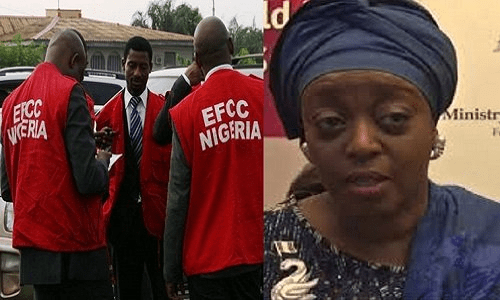There are no products in your shopping cart.
| 0 Items | £0.00 |


FORMER petroleum minister Diezani Alison-Madueke has landed in more trouble today after a federal high court in Abuja issued an arrest warrant against her in response to an application by the Economic and Financial Crimes Commission (EFCC).
Since leaving office in 2015 and going into exile in the UK, Ms Alison-Madueke has been the subject of numerous investigations in Nigeria and internationally. She has been asked to forfeit UK properties worth over £11m, has been forced to surrender about N7.6bn hidden in a Nigerian bank to the government and last year forfeited $40m worth of jewellery.
Ms Madueke, 60, fled Nigeria after the Peoples Democratic Party (PDP) lost the 2015 elections and has lived in Britain ever since. EFCC officials have been trying to get her extradited to Nigeria to face charges in what is proving to be a lengthy legal battle between the former minister and both governments.
Today, things got worse for Ms Alison-Madueke as Justice Bolaji Olajuwon, the presiding judge in the federal high court Abuja, issued a bench warrant for her arrest after listening to a plea from EFCC counsel Farouk Abdullah. Previously, Justice Ijeoma Ojukwu, had declined to grant a bench warrant on the grounds that the EFCC failed to enforce a criminal summon issued against the ex-minister on July 24, 2020.
However, today, Mr Abdullah had informed the court that the office of the attorney-general of the federation needed an arrest warrant to enable law enforcement agencies bring the defendant to Nigeria to answer to charges against her. Following Justice Ojukwu’s transfer to the Calabar division of the court, the case was reassigned to Justice Olajuwon, who granted the application today.
Mr Abdullah told the court today that all efforts by the agency to get the ex-minister extradited when the matter was before Justice Ojukwu were unsuccessful. Making an oral application, he submitted that an arrest warrant was required to enable the International Police Organisation to bring the defendant to Nigeria to face the allegations.